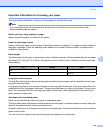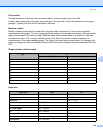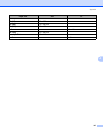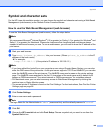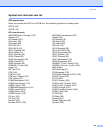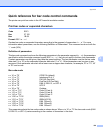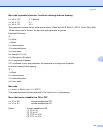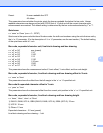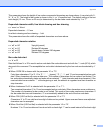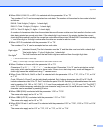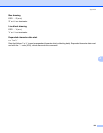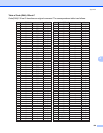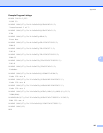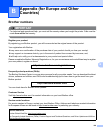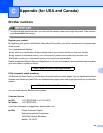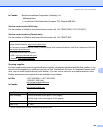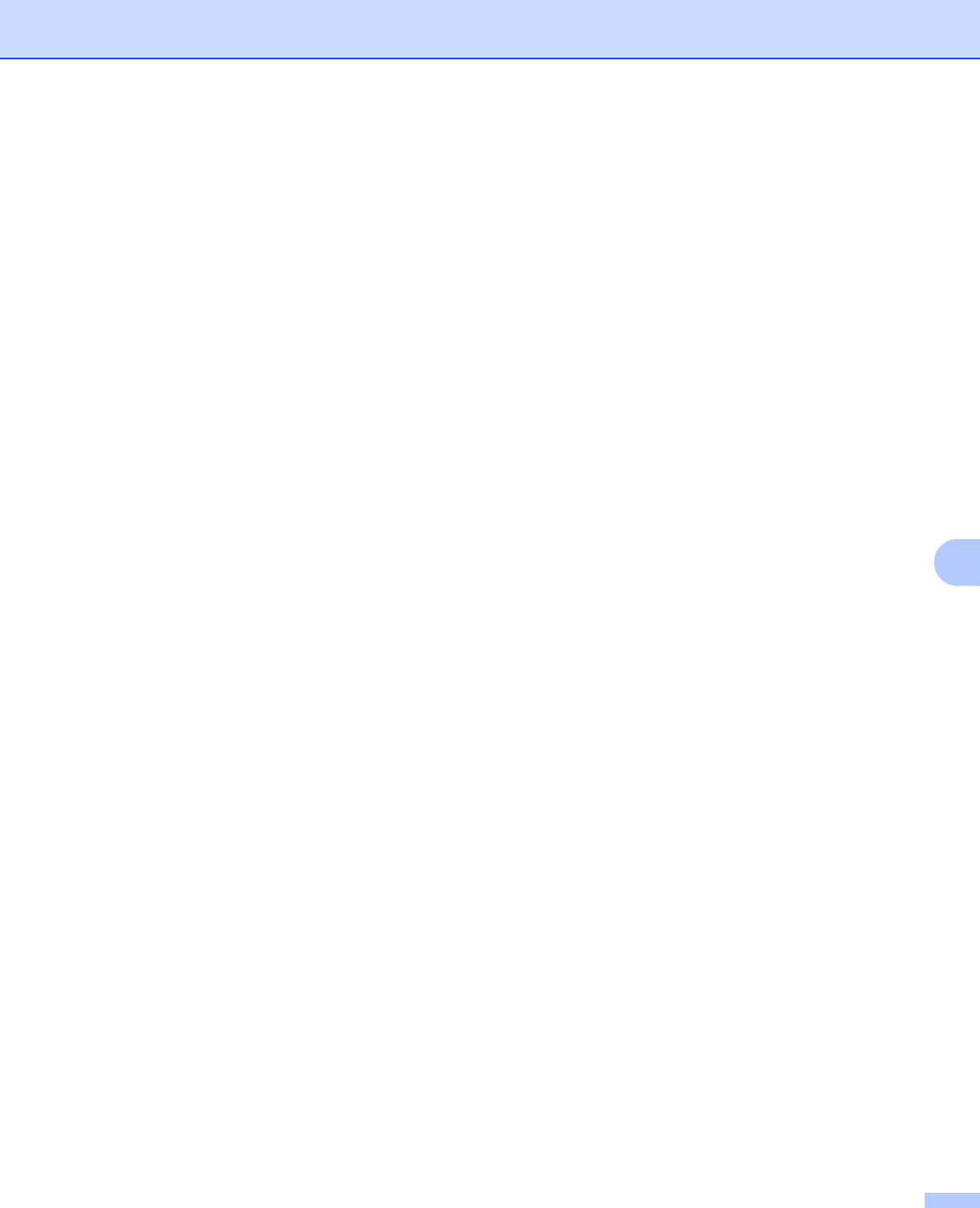
Appendix
153
A
This parameter shows the height of bar codes or expanded characters as shown above. It can start with ‘h’,
‘H’, ‘d’, or ‘D’. The height of bar codes is shown in the ‘u’- or ‘U’-specified unit. The default setting of the bar
code height (12 mm, 18 mm or 22 mm) is determined by the bar code mode selected by ‘t’ or ‘T’.
Expanded character width, line block drawing and box drawing 0
n = ‘wnnn’ or ‘Wnnn’
Expanded character i 1.2 mm
Line block drawing and box drawing i 1 dot
This parameter shows the width of expanded characters as shown above.
Expanded character rotation 0
Bar code data start 0
n = ‘b’ or ‘B’
Data that follows ‘b’ or ‘B’ is read in as bar code data. Bar code data must end with the ‘ \ ’ code (5CH), which
also ends this command. The acceptable bar code data is determined by the bar code mode selected by ‘t’
or ‘T’.
When CODE 39 is chosen with the parameter ‘t0’ or ‘T0’
Forty three characters ‘0’ to ‘9’, ‘A’ to ‘Z’, ‘-’, ‘ . ’, ‘ (space)’, ‘$’, ‘ / ’, ‘+’, and ‘%’ can be accepted as bar code
data. Other characters will cause a data error. The number of characters for bar codes is not limited. The
bar code data automatically starts and ends with an asterisk ‘ * ’ (start character and stop character). If the
received data has an asterisk ‘ * ’ at the beginning or end, the asterisk is regarded as a start character or
stop character.
When Interleaved 2 of 5 is selected with the parameter ‘t1’ or ‘T1’:
Ten numerical characters ‘0’ to ‘9’ can be accepted as bar code data. Other characters cause a data error.
The number of characters for bar codes is not limited. This mode of bar codes needs even characters. If
the bar code data has odd characters, ‘0’ is automatically added to the end of the bar code data.
When FIM (US-Post Net) is selected with the parameter ‘t3’ or ‘T3’
Characters ‘A’ to ‘D’ are valid and one digit of data can be printed. Upper-case and lower-case alphabet
characters can be accepted.
When Post Net (US-Post Net) is selected with the parameter ‘t4’ or ‘T4’
Numbers ‘0’ to ‘9' can be data and it must end with a check digit. ‘?’ can be used instead of the check digit.
n = ‘a0’ or ‘A0’ ‘Upright (preset)
n = ‘a1’ or ‘A1’ ‘Rotated 90 degrees
n = ‘a2’ or ‘A2’ ‘Upside down, rotated 180 degrees
n = ‘a3’ or ‘A3’ ‘Rotated 270 degrees



